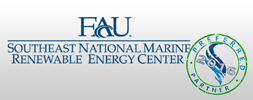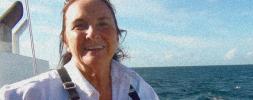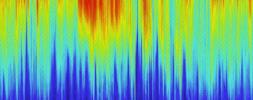The SNMREC Preferred Partner Program is an opportunity for our industry partners to collaborate more fully with the Center. This program is designed to dedicate SNMREC experts and resources to individual industry partner development needs.
Publication TR-11-175
Reference: Fisher, A., J. VanZwieten, and N.I. Xiros, 2011: Station keeping adaptive control of a boat with twin gasoline outboard motors: Synthesis, simulation, and sea-trials. Proceedings, 30th International Conference on Ocean, Offshore, and Arctic Engineering, June 19-24, 2011, Rotterdam, The Netherlands, OMAE2011-49827.
Abstract: There are increasingly more areas in which automatic station keeping technology can be of great benefit for small boat operators. This trend stems from technological advances that allow for smaller and more portable instrumentation and gear, bringing down the necessary size of vessels, which ultimately reduces cost. However, smaller vessels find themselves more adversely affected by sea conditions and have limited thrusting capabilities. Currently a skilled captain is needed on these small vessels to hold position over the area of interest in the presence of wind, wave, and current disturbances. Implementation of an automatic station keeping controller would free the captain from constantly monitoring the navigational instruments, to more closely supervise onboard operations and keep watch for other vessels in the area. Station keeping technology is currently being perused by Florida Atlantic University to enhance the ability of its 33ft boat to make oceanographic measurements in the Gulf Stream pertinent to its ocean energy projects. Such ocean energy projects require water velocity and temperature measurements at specific locations as part of the efforts for assessment of the hydrokinetic and ocean thermal resource. This technology is also a pivotal part of the sea basing goal currently being pursued by the Navy, which would allow vessels to stay in close but acceptable proximity to one another. The ability to hold position over a desired location can also have many additional uses such as for fishing, conducting surveys, deploying instruments, and transferring cargo or personnel. This text presents a novel approach for doing station keeping, as thus far a system for station keeping on small vessels using only tied twin outboard motors has not been developed and applied to an ocean going vessel by industry or academia. These controllers have been developed using multiple fixed-gain and adaptive control algorithms. Using a custom sensor and control system mounted onboard the test vessel; navigational measurements are used to adjust the throttles and engine angle using these developed algorithms. The performance of each of these controllers has been quantified using both numerical simulations and at sea testing. Using the results from these tests, initial comparisons have been made that show the advantages gained by using adaptive control algorithms instead of fixed-gain control.



